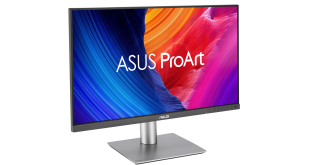Amazon plans to invest $55 million in its Lab 126 research and development facility in California and increase the headcount of R&D staff to over 3700 by 2019. The expansion of the “secretive” laboratory reaffirms Amazon’s plans to continue designing its own hardware, address new markets and become closer to its customers.
“We will continue to invent and create new features, services and products, and to support this innovation. Lab 126 is also growing very quickly,” said Kinley Pearsall, an Amazon spokeswoman.
According to the agreement Amazon has signed with the state of California in June, it will invest $55 million on hiring additional personnel for A2Z Development Center, the official name of Lab126, in exchange for $2.1 million in tax breaks, reports Reuters news-agency. At present the facility employs nearly 3000 full-time workers.
Amazon’s Lab 126 is “responsible” for Kindle e-book readers, Kindle Fire tablets, Fire set-top-box and Fire smartphone. Going forward the R&D arm of Amazon is expected to design wearable computing devices, smart-home appliances and other products that the company finds important for its online businesses.
While it took Lab126 four years to develop the Amazon Fire smartphone, the device received lackluster sales and reviews, which confirms that Amazon needs to boost its spending to get its devices right.
Discuss on our Facebook page, HERE.
KitGuru Says: $55 million is a lot of money, hopefully, it will result in creation of fine new products. The biggest problem of Amazon's Lab126 is not the lack of innovation or vision, but the fact that Amazon wants its devices to help sell things to people. When Apple or Samsung design electronics, they want to earn on hardware and software, which is why they try to make devices that people will want to buy. For Amazon, it is important how people will use its products and how will they help people to buy from Amazon. As a result, Amazon's Fire smartphone got an auto-stereoscopic 3D display and Firefly functionality in addition to all services from Amazon, but did not get enough modern capabilities people expect from 2014 handsets.
 KitGuru KitGuru.net – Tech News | Hardware News | Hardware Reviews | IOS | Mobile | Gaming | Graphics Cards
KitGuru KitGuru.net – Tech News | Hardware News | Hardware Reviews | IOS | Mobile | Gaming | Graphics Cards



